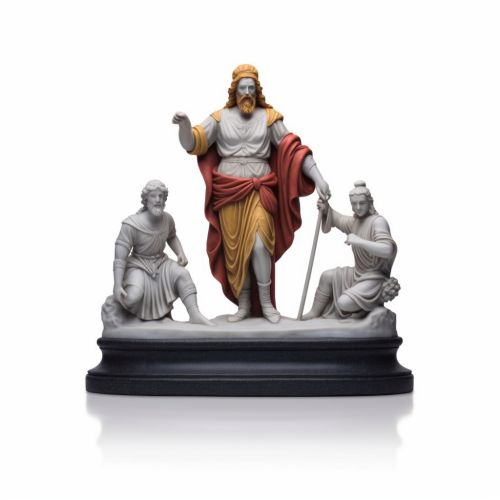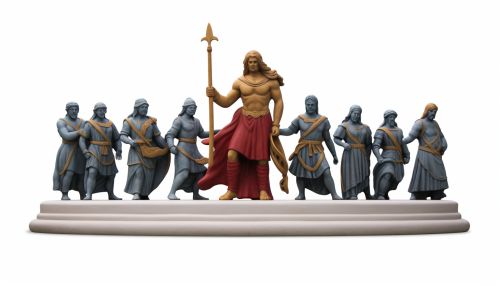Twelve Olympians
Overview
The Twelve Olympians are a group of deities in the pantheon of Greek mythology, who were considered to be the principal gods of the Greek pantheon and resided on Mount Olympus. The Olympians gained their supremacy in a war of gods in which Zeus led his siblings to victory over the Titans.
Members
The Twelve Olympians include the following deities:
- Zeus, the king of the gods and the ruler of Mount Olympus. He is the god of the sky and thunder.
- Hera, the queen of the gods and the wife of Zeus. She is the goddess of women, marriage, family, and childbirth.
- Poseidon, the god of the sea, earthquakes, and horses. He is the brother of Zeus.
- Demeter, the goddess of agriculture, fertility, sacred law, and the harvest. She is the sister of Zeus.
- Athena, the goddess of wisdom, courage, and strategic warfare. She is the daughter of Zeus.
- Apollo, the god of music, truth, prophecy, healing, the sun, and light. He is the son of Zeus and Leto.
- Artemis, the goddess of the hunt, wilderness, wild animals, and chastity. She is the daughter of Zeus and Leto, and the twin sister of Apollo.
- Ares, the god of war. He is the son of Zeus and Hera.
- Aphrodite, the goddess of love, beauty, and desire. She is said to have been born from the foam of the sea after Uranus was castrated.
- Hephaestus, the god of fire, metalworking, and crafts. He is the son of Zeus and Hera.
- Hermes, the god of trade, thieves, travelers, sports, and guide to the Underworld. He is the son of Zeus and Maia.
- Dionysus, the god of wine, pleasure, and festivity. He is the son of Zeus and Semele.


Worship and Cult
The Twelve Olympians were honored with temples throughout Greece and the ancient Greek colonies. They were worshipped through individual and communal rituals, sacrifices, and festivals. The most significant of these festivals was the Olympic Games, held every four years in Olympia in honor of Zeus.
Influence on Roman Mythology
The Twelve Olympians had a significant influence on Roman mythology. The Romans adopted the Greek pantheon but changed the names of the gods to suit their Latin language. For example, Zeus became Jupiter, Hera became Juno, and Poseidon became Neptune.
